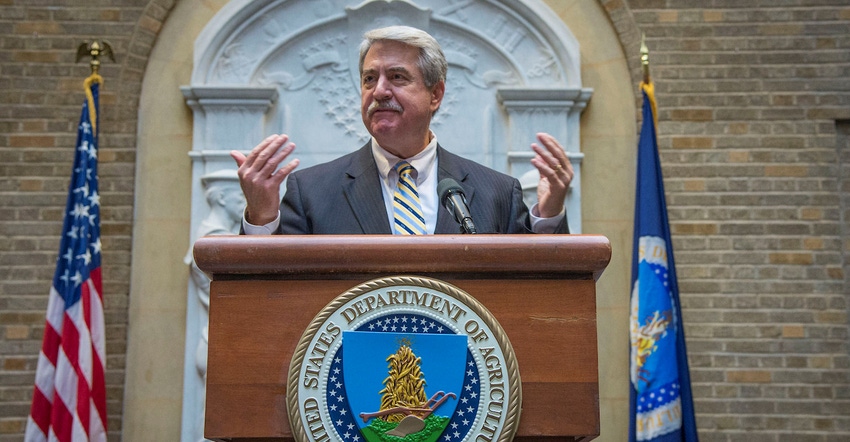Trip to Mexico highlights building friendship with strong trading partner Mexico.

Calling Mexico a friend and integral partner for U.S. agricultural trade, U.S. Department of Agriculture undersecretary for trade and foreign agricultural affairs Ted McKinney headed to Mexico as part of a multi-day visit.
While speaking with media from Mexico on a press call, McKinney said he visited Guadalajara, Mexico, on March 5 for the Expo ANTAD & Alimentaria international food and drink trade show. He also had government-to-government meetings and visited with key customers and thought leaders.
McKinney said there’s a strong commitment with Mexico. “We need to make sure our great and growing relationship with Mexico is sustained and enhanced,” he said. McKinney noted that there are some “unknowns” with the new government, but this mission trip and ongoing dialogue help ensure that the U.S. is doing “everything we can to build understanding” with Mexico and “always remind them trade is a two-way street.”
A major issue is removal of the Section 232 steel and aluminum tariffs, which both sides of the border agree needs to occur. “We hope and seek for [Section] 232 tariffs to be removed as soon as possible,” McKinney said. He said he understands why the tariffs were first put in place, especially as some in the steel and aluminum industry were under threat and, in some cases, on life support, but now that time has passed, the health of those segments has been restored.
He said Mexico also sees the U.S.-Mexico-Canada Agreement (USMCA) as largely good.
One issue McKinney said he highlighted pertains to the lack of potato trade with Mexico despite an agreement in 2017 regarding avocadoes that was designed to allow increased market access for U.S. potatoes. “We’re hopeful we can restore some trade,” he said, adding that Mexico ranks in the bottom third of the world in the trade of potatoes.
In February, the U.S. Department of Commerce also indicated that the U.S. will withdraw from a previous agreement with Mexico and resume an antidumping investigation into imports of fresh tomatoes from Mexico. Commerce Secretary Wilbur Ross said the decision was taken to protect the American tomato production industry from unfair trading practices.
The 2013 Suspension Agreement on Fresh Tomatoes from Mexico sets a price floor for imported Mexican tomatoes. The Tomato Suspension Agreement sets different price floors for Mexican fresh tomatoes during the summer and winter and also specifies prices for open-field/adapted-environment and controlled-environment production. It also suspends an antidumping investigation that dates back to the mid-1990s.
McKinney said he recognizes that producers in the Southeast are experiencing some market issues, but his team was surprised by the Commerce Department's challenge to the suspension agreement. He said a few months remain to sort out what’s behind the complaint and to find a solution. He added that he hopes an “amicable solution” to the tomato dispute can be found in the next 60-90 days.
About the Author(s)
You May Also Like




.png?width=300&auto=webp&quality=80&disable=upscale)
